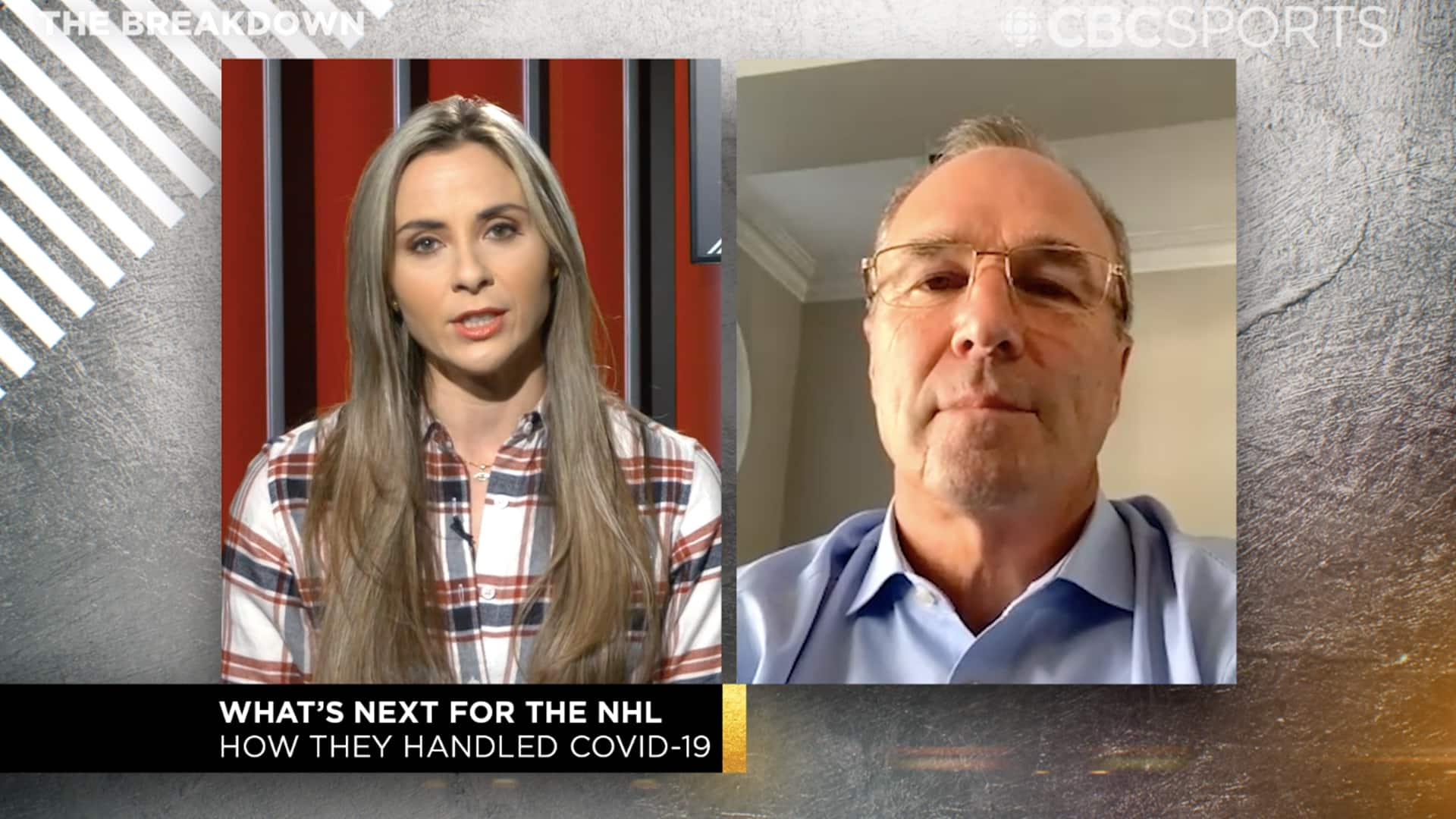In a normal season some members of the Calgary Flames’ scouting department attend well over 200 Western Hockey League games.
This year, with COVID-19 playing havoc with how the junior leagues operate, Calgary general manager Brad Treliving has no idea how many games Flames’ scouts will watch in person. That will impact the decisions made by the Flames, and other teams, come the 2021 NHL Entry Draft.
“There’s going to be less games played,” said Treliving. “If there’s less games, there’s going to be less viewings. It’s going to make it more difficult.”
The three major junior leagues in Canada are currently “all over the map” when it comes to schedules and who might be allowed into buildings to watch games.
“It’s made it more challenging, but you’ve got to find a way to get the job done as best you possibly can,” Treliving said.
“If COVID has taught us anything, it’s that you have to be flexible and you have to be prepared to pivot, weekly, daily, hourly as things change.”
The Quebec Major Junior Hockey League began play Oct. 2, but saw some teams forced off the ice due to positive COVID tests. The league still plans on playing a 60-game schedule.
WATCH | NHL analyst Dave Poulin discusses NHL’s next steps:

The NHL had zero cases in the bubble during the 2020 Stanley Cup Playoffs, but what’s next for the league? Andi Petrillo speaks with NHL analyst Dave Poulin. 6:03
The WHL has set a Jan. 8 start date. The schedule hasn’t been decided but up to 52 games is possible.
The Ontario Hockey League is looking at starting a 40-game season beginning Feb. 4.
WHL commissioner Ron Robison said the league plans “to do everything we can to accommodate” NHL scouts.
“The reality will be there’s less games,” he said.
Rewind the tape
Scouts hope to attend as many games as possible, but teams will have to rely heavily on video.
Treliving said video “is of great use and you get great mileage out of it,” especially for players teams already have their eye on.
“It’s more advantageous to watch video when you know the player a little bit,” he said. “When you turn on a game, and you’re trying to identify who the players are, it’s your first viewing, it’s more challenging.”
Using video probably won’t affect projected first-round picks like winger Dylan Guenther of the Edmonton Oil Kings or defenceman Brandt Clarke of the Barrie Colts. But scouts not being able to watch games live could result in some other players falling further back in the draft.
“It usually comes down to viewings,” said Treliving. “Those guys, later round picks, you get a real good sense of them based upon the number of times you see them.”
Playing less games also reduces a player’s chances of impressing scouts.
“There may be guys that aren’t going to play as much,” he said. “If you aren’t going to be playing, you’re not going to be seen.”
Video has “come a long way,” said Treliving, but scouts “are still a little bit of a slave to the quality.
“You could be the greatest talent evaluator as a scout, but if the quality is not very good, it’s difficult to really dig into.”
Silver lining
The Canadian Hockey League announced March 12 it was cancelling the remaining games in the 2020 regular season due to COVID-19. A few weeks later the Memorial Cup, scheduled for Kelowna, B.C., was cancelled.
While anxious to get back playing, some junior players like Colton Dach believe the long layoff will actually improve their draft potential.
“We’ve had six or seven months of training and to make ourselves better to get drafted,” said Dach a 17-year-old winger with the Saskatoon Blades who is projected to be chosen anywhere from the fourth to sixth round.
“For me personally, I’ve already noticed myself being faster and stronger.”
The extra time has also helped Zack Ostapchuk — a 17-year-old forward with the Vancouver Giants — rehab from a serious knee injury that shortened his season last year.
“I’m eight months into my recovery, so it helps for sure,” said Ostapchuk.
Treliving agreed a long summer of training and recuperation will benefit many of the draft-eligible players.
“They’ve had that time to physically develop,” he said. “It’s offset by … you’re not playing as many games to be seen. But in the long run, it could be a very good thing for some of these kids that they’ve had this extra training time.”